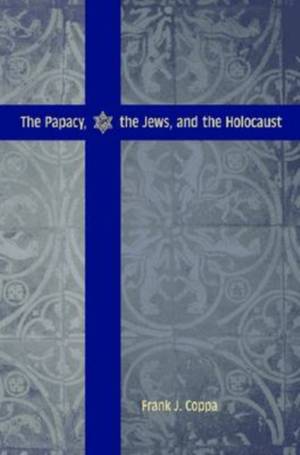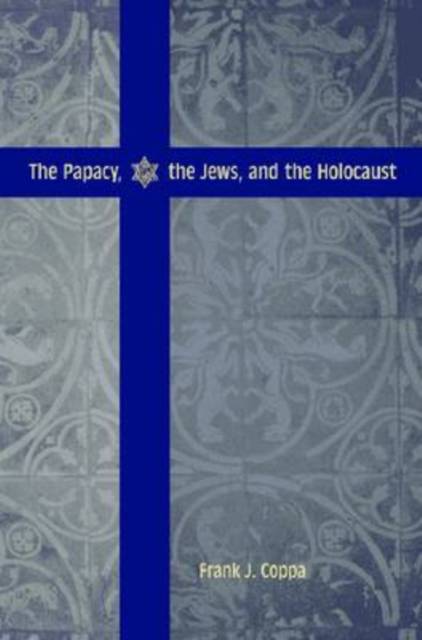
- Retrait gratuit dans votre magasin Club
- 7.000.000 titres dans notre catalogue
- Payer en toute sécurité
- Toujours un magasin près de chez vous
- Retrait gratuit dans votre magasin Club
- 7.000.000 titres dans notre catalogue
- Payer en toute sécurité
- Toujours un magasin près de chez vous
Description
The papacy has long played a crucial role in western civilization. To many, its history and theology have seemed steeped in hostility toward the Jews. In the post-World War II era, the initial focus was on Pope Pius XII's stance during the Holocaust; it soon expanded, however, to the broader question of the papacy and the Jews. The present work transcends the thicket of controversy and provides a historical account of the relationship between the papacy and the Jews in the modern age, and the interaction between clerical anti-Judaism and secular anti-Semitism. In light of the polemical debate this subject has aroused during the past half century, this is no small task. In this work, acclaimed author and historian Frank J. Coppa once again proves a capable guide to exploring the issues.
In 1963, Helmut Hochhuth's play "The Deputy" sparked controversy about Pius XII's role during the genocide and the general responsibility of previous popes and the Catholic Church in bringing it about. Some have argued that Pius XII's "silence" can only be understood in the context of centuries of Christian "disparagement" of Jews, seeing the differences between Christian anti-Judaism and Nazi anti-Semitism as one of degree not of kind, with both contributing to the Holocaust. Others have denied the Christian roots of anti-Semitism, noting the difference between clerical anti-Judaism, motivated by religious considerations, and modern anti-Semitism, based on a racial ideology. Coppa explores both contentions in examining the Vatican's response to modern anti-Semitism.
This work not only examines Rome's reaction during the fascist period but delves into the broader historical development and the impact of theological anti-Judaism. Coppa contends that developments are seldom, if ever, driven by a single force but flow from a multiplicity of factors. While some considerations are more important than others, their significance is to be determined by historical inquiry rather than imposed by preconception. He untangles these developments in this masterful work.
ABOUT THE AUTHOR:
Frank J. Coppa is professor of history at St. John's University. In addition to Controversial Concordats: The Vatican's Relations with Napoleon, Mussolini, and Hitler, published by CUA Press, he is the author or editor of twenty books.
PRAISE FOR THE BOOK:
"Frank Coppa approaches this controversial subject with admirable clarity and balance. Notable differences emerge with respect to the attitudes and actions of successive nineteenth- and twentieth-century popes, culminating in John Paul II's acknowledgment of, and efforts to mitigate, the Church's earlier history of anti-Jewish prejudice and oppression. Coppa's comprehensive, up-to-date bibliography of primary and secondary sources will be most useful for readers wishing to delve deeper into this compelling topic."--Steven F. White, Mount Saint Mary's University
"This is a judicious, well-balanced historical appraisal of the relationship between the Papacy and the Jews in the modern age. Frank Coppa has explored the Vatican relationship to traditional anti-Judaism and modern anti-Semitism in all its dimensions, both positive and negative. Unlike more polemical studies on the Vatican and the Holocaust, Coppa's book weighs the historical evidence and seeks to explain the positions taken by the Papacy toward the Jews in different times and periods. This is an enlightening and well-balanced study."--Peter Kent, University of New Brunswick
"With this work, Frank Coppa has burnished his well-deserved reputation as the dean of today's historians of the modern papacy. Eschewing the polemic and diatribe that too often characterizes studies on the papacy and the Jews, Coppa presents a sweeping, yet painstakingly detailed, overview of this difficult subject. Neither rabid anti-papal writers nor animated apologists for
Spécifications
Parties prenantes
- Auteur(s) :
- Editeur:
Contenu
- Nombre de pages :
- 353
- Langue:
- Anglais
Caractéristiques
- EAN:
- 9780813215471
- Date de parution :
- 07-08-08
- Format:
- Livre broché
- Format numérique:
- Trade paperback (VS)
- Dimensions :
- 150 mm x 224 mm
- Poids :
- 498 g







